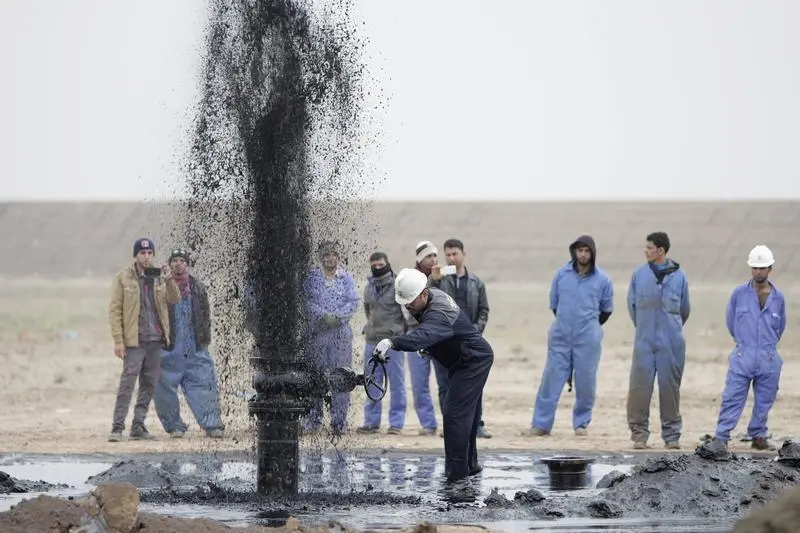PHOTO
BAGHDAD- Iraq will hold an auction to award exploration and development contracts to international energy companies on Thursday, the oil ministry said in a statement.
Iraq is offering 11 new blocks for exploration in border areas with Iran and Kuwait and in offshore Gulf waters.
Fourteen companies have expressed interest in the bidding round, the oil ministry said on April 14.
Oil companies' offers will be received at a ceremony at the oil ministry starting at 10 a.m. (0700 GMT) on Thursday and the auction results will be announced later in the day, the ministry said in its statement on Monday.
It is the third time the auction date has been changed. The blocks were initially to be auctioned in June, but the date was brought forward to April 15, then postponed to April 25 to give bidders more time, the oil ministry said at the time.
Last month the ministry announced measures to reduce the fees paid to oil companies in the contracts to be auctioned.
The new contracts will exclude oil by-products from the companies' revenue, establish a link between prevailing oil prices and their remuneration, and introduce a royalty element.
Oil companies operating in Iraq currently receive a fee from the government linked to production increases, which include crude and oil by-products such as liquefied petroleum gas.
OPEC's second-largest producer after Saudi Arabia, Iraq decided to change the contracts after a glut caused oil prices to crash in 2014, reducing Baghdad’s ability to pay such fees.
Companies including BP, Exxon Mobil, Eni, Total, Royal Dutch Shell and Lukoil have helped Iraq expand production in the past decade by over 2.5 million barrels per day (bpd) to about 4.7 million bpd.
The semi-autonomous Kurdistan Regional Government produces oil and gas from fields it controls in northern Iraq under a production-sharing model that is more profitable to companies.
The new contracts offered by Baghdad will also set a time limit for companies to end gas flaring from oilfields they develop.
Iraq continues to flare some of the gas extracted alongside crude oil at its fields because it lacks the facilities to process it into fuel.
Iraq hopes to end gas flaring by 2021. Flaring costs the government nearly $2.5 billion in lost revenue each year and could meet most of its unmet needs for gas?fired power, according to the World Bank.
(Reporting by Maher Chmaytelli; editing by Jason Neely and Susan Fenton) ((maher.chmaytelli@thomsonreuters.com; +9647901917030;))





















